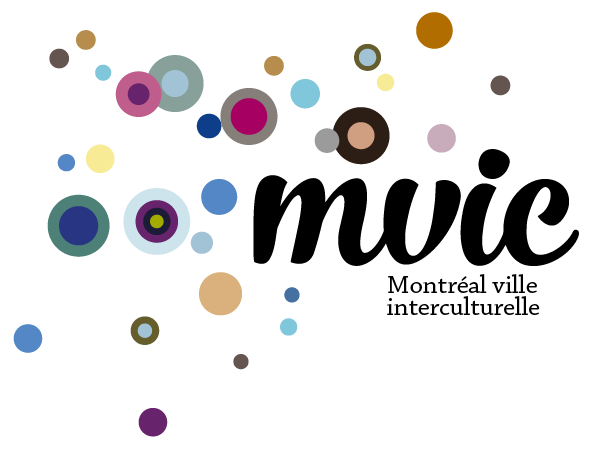En mai 2014, le LABRRI a organisé un forum international
sur les villes interculturelles en collaboration avec la Ville de
Montréal et le Conseil de l’Europe:
But et description du projet
En octobre 2011 la ville de Montréal a été reconnue par le Conseil de l’Europe comme la deuxième « cité interculturelle » en dehors de l’Europe, après la ville de Mexique (Conseil de l’Europe, 2011). Au-delà du caractère inévitablement protocolaire d’un tel évènement, cette reconnaissance réaffirme l’importance des relations entre les différentes personnes et communautés qui composent la ville. Cependant, une série d’évènements récents laisse l’impression d’un malaise par rapport à la possibilité de la cohabitation interculturelle dans la grande région de Montréal (retour sur la Commission Bouchard-Taylor, audiences publiques sur le profilage racial suite aux évènements de Montréal-Nord, discussions sur la « Charte des valeurs », etc.). De ces constats, il ressort la nécessité pour Montréal de revisiter de façon systématique les acteurs et les institutions qui la composent afin de comprendre les différents discours et pratiques des dynamiques interculturelles. À cet effet, le Laboratoire de recherche en relations interculturelles (LABRRI) de l’Université de Montréal propose un programme de recherche en partenariat afin d’identifier des problématiques, des pratiques et des expertises interculturelles.
Objectifs du projet
Le savoir produit dans le cadre de ce projet permettra de mieux saisir la façon dont les citadins pensent, vivent et interagissent entre eux et la structure du partenariat sera le garant que les connaissances acquises seront mobilisées dans plusieurs champs d’action hors du milieu universitaire. Étant donné l’avancement des travaux préliminaires, et la nature heureuse d’un partenariat déjà existant, nous estimons qu’une période de trois ans (2012-2015) sera suffisante pour l’atteinte des objectifs principaux du projet :
- Documenter l’état du savoir interculturel et la diversité des pratiques et expertises interculturelles dans l’espace urbain montréalais afin de déterminer s’il s’agit d’un modèle qui pourrait être appliqué ailleurs
- Améliorer la communication et faciliter la collaboration entre les différents acteurs et structures concernés par les dynamiques interculturelles dans le contexte pluraliste de l’espace urbain
- Proposer de nouvelles perspectives théoriques et méthodologiques pour comprendre les pratiques interculturelles et élaborer des outils de formation pour assurer leur pérennité, autant sur le plan social qu’institutionnel
Building Intercultural Cities:
From Practice to Policy and Back Again
May 20-24, 2014
An international forum organized by the LABRRI, in collaboration with the City of Montreal and the Council of Europe
Cities have always been places where people of different cultural and social backgrounds cohabit and pursue common goals in spite of their differences. In this sense there is nothing new about the phenomenon of intercultural cities. In recent years, however, the intensification of cultural diversity in cities in many parts of the world has led to increasing concerns about inter-ethnic tensions, social inequality, and racial discrimination. One response to these challenges has been to focus more attention on the dynamics and potential benefits of intercultural policy and practice (Gimenez, Wood and Landry 2008).
Intercultural policy for cities has become a dynamic area of research and policy design. Some authors have even suggested that this movement represents a totally new approach to the problems of social inclusion and cohesion in an era of super-diversity (Cantle 2012, Zapata 2013). By virtue of their intermediate status—not federal, not provincial, at the same time global and local—cities are in a particularly good position to formulate policy frameworks that will contribute to the well-being of all citizens, regardless of their origins (White in press). To go beyond the promotion of « good practices », however, it is important to think about intercultural policy from an analytical and comparative perspective.
Certain cities have made significant advances in this domain, but until now very little work has been done to understand the underlying principles of these frameworks and the processes involved in their implementation. The outreach activity proposed here—an international workshop on the process of policy design for intercultural cities—will bring together policymakers and intercultural experts in order to compare intercultural policies and practices in cities that are increasingly affected by the phenomenon of super-diversity (Vertovec 2007). The primary objective of the workshop is to elaborate a series of tools that will enable policymakers and practitioners to make cities more inclusive by leveraging recent advances in the field of intercultural policy and practice (Council of Europe 2009, Rocher in press, White in press).
Overview
The outreach activity proposed here is the final event in a series of activities that will result in the production of an on-line resource for intercultural policy design and practice. Through a number of presentations, roundtables and interactive break-out sessions, participants will be asked to present recent findings on intercultural policy for cities, not only the different components of particular policy frameworks, but also the obstacles most often encountered during design and implementation and the strategies used to create alliances, both internally and externally. In order to organize these disparate forms of information, the workshop will produce three concrete outcomes:
- a series of city-based case studies about policy process and design
- a comparative analysis framework for understanding similarities and differences between cities
- a proposal of common principles for policy design in intercultural cities
The proposed activities will attempt to bridge the gap between researchers and practitioners by enabling practitioners to become familiar with new methodologies and analytical frameworks, while at the same time providing researchers and their students with valuable information about intercultural and institutional dynamics on the ground.
Résumé du forum:
Programme :
version française et version anglaise
Présentations PowerPoint :
Bob W. White : version française et version anglaise
Helena Rojas
Belgacem Rahmani
Irena Guidikova
Jude Bloomfield
Céline Maye et Olivier Freeman
Tone Skodvin
Damiano Razzoli
Présentations poster :
Cadre de référence interculturel du LABRRI : version française et version anglaise
Petite histoire des accommodements raisonnables : version française et version anglaise
Remerciements
Extraits:
An edited volume will also be appearing at Palgrave-McMillan press in the fall of 2017
Intercultural Cities: Policy and Practice for a New Era
Edited by Bob W. White
In recent years, demographic changes in cities in many parts of the world have led to increasing concerns about inter-ethnic tensions, social inequality, and racial discrimination. By bringing together recent advances in the areas of urban planning and intercultural theory, this volume sets out to explore the political and social potential of intercultural policy for cities. By virtue of their intermediate status—neither national nor regional, at the same time global and local—cities are in a particularly good position to formulate policy frameworks that will contribute to the well-being of all citizens, regardless of their origins. Certain cities have made significant advances in this domain, but until now very little work has been done to understand the underlying principles and processes behind the creation of intercultural policies and programs. The overall goal of this volume is to facilitate conversations between researchers and practitioners in their efforts to make cities more inclusive by leveraging recent advances in the field of intercultural policy and practice, but it is also intended to generate knowledge about the conditions, obstacles and strategies that make intercultural cities part of a common future.

